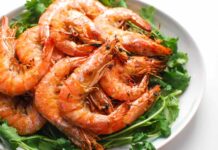BlueWeave Consulting, a leading strategic consulting and market research firm, in its recent study, expectsAsia-Pacific seaweed snack market size to grow at a CAGR of 18.5% during the forecast period between 2023 and 2029. Major factors for the expansion of Asia-Pacific seaweed snack market are increasing adoption of organic products, modification in consumers’ preferences, and a surging demand from the cosmetic industry, rapidly expanding food business, particularly in the developing economies. The rising popularity of seafood, such as sushi, seaweed salad, seaweed chips, seaweed bars, roasted seaweed, and organic seaweed snacks, is also driving market expansion. Apart from flavor and texture, the seaweed snacks are also high in nutrients. It, in turn, is expected to drive seaweed snack sales, as there has been a rising demand for healthy and clean-labeled seafood items in the recent years. The market is predicted to benefit from the product’s increasing availability, because of the expansion of supermarkets and hypermarkets in various countries. The thriving e-commerce platform will accelerate the market expansion during period in analysis. However, complicated extraction process and high cost of production are anticipated to limit the growth of Asia-Pacific seaweed snack market.
Asia-Pacific Seaweed Snack Market – Overview
Seaweed snacks can be eaten and included in cooking. They have a high fiber content and could be classified as one of three types of multicellular algae: red algae, green algae, or brown algae. Seaweeds are rich in nutrients, such proteins, vitamins, minerals, dietary fiber. polyphenols, polysaccharides, sterols, and other bioactive compounds. When compared to terrestrial plants, seaweeds have a major portion of essential fatty acids, such as eicosapentaenoic (EPA) and docosahexaenoic (DHA). Due to its specific structure, natural umami flavor, and proper thickness or consistency, seaweed is often employed in the production of specific food products. It is a popular food product across Asian nations and European restaurants, whether vegetarian or non-vegetarian, utilize sea tang to provide the finest dishes. Several researchers believe that consuming dried algae on a regular basis lowers the incidence of gastric ulcers and tumors, diabetes, certain forms of cancer, and cardiovascular diseases.
Request for Sample Report @ https://www.blueweaveconsulting.com/report/asia-pacific-seaweed-snack-market/report-sample
Asia-Pacific Seaweed Snack Market – Opportunity
Supportive government policies and regulations promoting seaweed products
Government authorities have made concerted attempts to regulate the manufacturing and use of ecologically friendly items, such as forbidding the use of specified chemicals and imposing maximum consumption restrictions. As a result, there is an immediate need to develop bio-based agrochemicals to lessen the detrimental impacts of synthetic agrochemicals on the environment. Furthermore, the benefits of employing seaweed extracts, such as low toxicity, high specificity, and higher efficiency, have led to an increase in their consumption. As a result, there are several market opportunities in the industry for producing seaweed-based goods.
Asia-Pacific Seaweed Snack Market – By Distribution Channel
Based on distribution channel, Asia-Pacific seaweed snack marketis divided into Hypermarket & Supermarket, Convenience Stores, and Specialty Stores. The specialty stores segment holds the highest market share, as these stores provide high-quality service and have a customer care department. The stores provide global label brands as well as private labels, which are projected to create new prospects for the market’s leading manufacturers of seaweed snacks. Due to the availability of a wide range of seaweed items, supermarkets are also in high demand. The spurring demand for these offline stores is due to most consumers still prefer to shop in a physical outlet to select the best products.
Impact of COVID-19 on Asia-Pacific Seaweed Snack Market
COVID-19 had a detrimental effect on Asia-Pacific seaweed snack market. People’s salaries were significantly reduced, and some were even laid off during the Covid-19 pandemic’s breakout. The pandemic posed a threat to the Asia-Pacific economies and had an adverse effect on many commercial sectors, including the seaweed snacks market. The pandemic’s impact on people’s disposable income, combined with disrupted supply chains, hindered the growth of seaweed snacks market. However, the population’s intake of bio-based products has increased, boosting demand for the seaweed snack market in the Asia-Pacific region.
Competitive Landscape
Major players operating in Asia-Pacific seaweed snack market include PepsiCo, Inc., CJ CHEILJEDANG CORP., TAOKAENOI FOOD & MARKETING PCL., KwangcheonKim, Boonrawd Brewery, SeaSnax, Fujian Qinqin Holdings Co., Ltd., QINGDAO HEALTHY CARE FOODSTUFF CO., LTD, GUANGDONG PEKE FOOD ENTERPRISES CO., LTD., Weifang Alice Food Co., Ltd., and Nantong Xinlang Seaweed & Foods Co., Ltd. To further enhance their market share, these companies employ various strategies, including mergers and acquisitions, partnerships, joint ventures, license agreements, and new product launches.
Contact Us:
BlueWeave Research Blog
Phone No: +1 866 658 6826
Email: info@blueweaveconsulting.com














